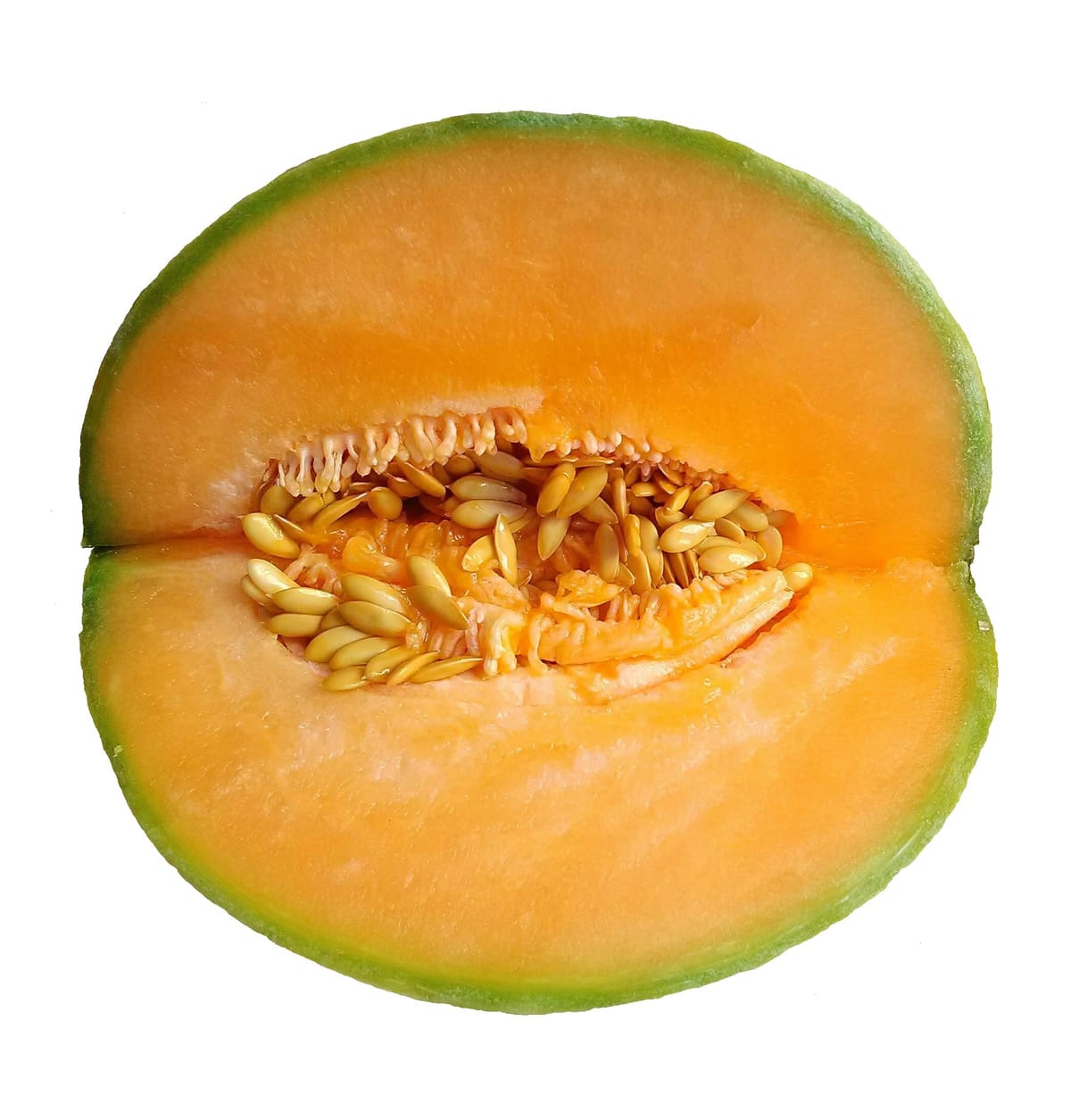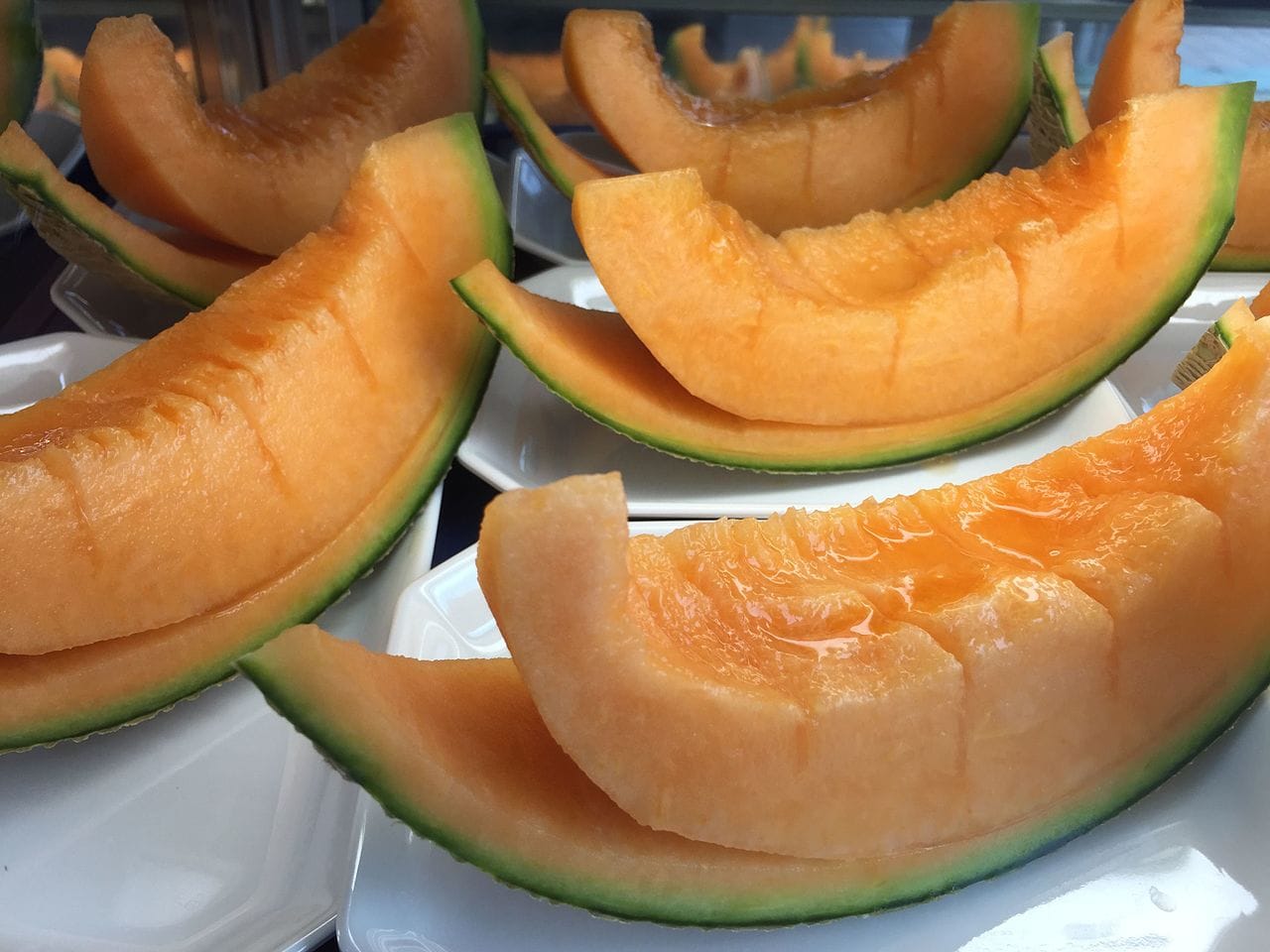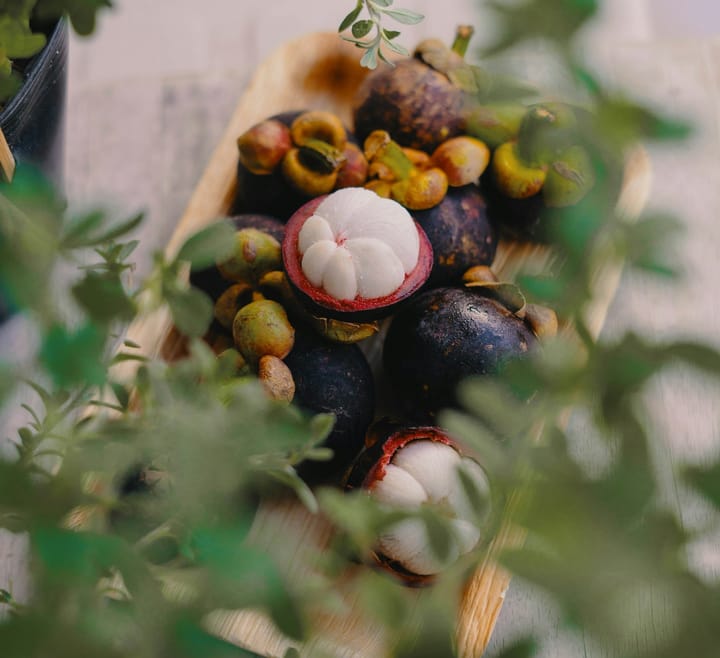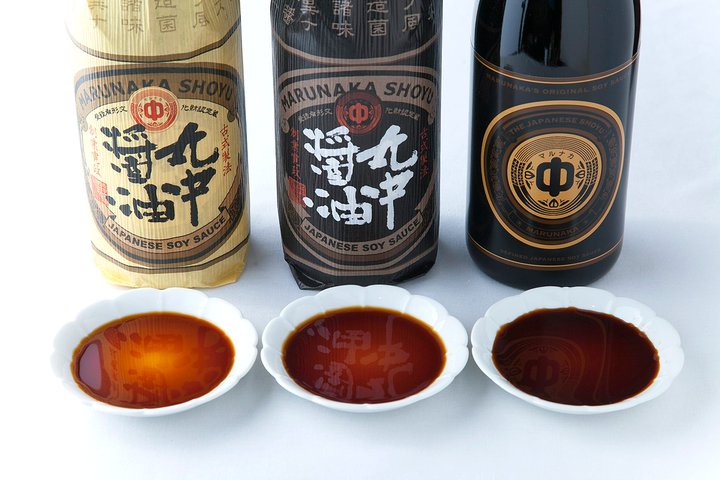The Perfect Fruit: How Hokkaido's Climate Creates Yubari King Melon
Japan's prized Yubari King melons blend science and tradition. Grown in Hokkaido's volcanic soil with meticulous care, these perfect hybrid fruits command astronomical prices for their exceptional sweetness and texture

In the snow-capped mountains of Hokkaido, Japan lies a small former coal-mining town that has reinvented itself as the epicenter of luxury fruit cultivation.
Here in Yubari, the legendary King melons are grown with such meticulous care that they've earned the title of the world's most expensive fruit, often fetching prices upward of $45,000 per pair at auction.
The journey of a Yubari King melon begins with a meticulous botanical process.
While some Yubari melon farms do use hand-pollination techniques, many actually employ bees for pollination in their greenhouses.
As shown in documentaries about Yubari melons, farmers carefully manage the pollination process, whether through controlled bee populations or manual techniques, to ensure optimal fruit development.
Before dawn breaks, farmers identify female flowers that have just opened, recognizable by the small bulbous structure at their base.
This process isn't merely functional—it's the first quality control checkpoint. Only the strongest, most perfectly formed flowers are selected, ensuring excellence from the very beginning.
Each plant is typically allowed to produce only one fruit, channeling all nutrients and energy into creating a single perfect specimen rather than several adequate ones.
The 100-Day Growth
Once pollination occurs, a precisely calibrated 100-day growth period begins—a timeline adhered to with chronometric precision.
During this period, Yubari King melons undergo a cultivation regimen that rivals the training of elite athletes.
For the first 45 days, farmers focus on establishing optimal vegetative growth, carefully monitoring soil conditions, humidity, and temperature.
The growing environment is adjusted throughout the day, often requiring measurements and corrections in two-hour intervals.
The greenhouse climate must mimic Yubari's natural environment while eliminating its harshness—creating what farmers call the "perfect melon microclimate."
Around day 50, when the fruits have reached approximately the size of a tennis ball, the most labor-intensive phase begins.
Farmers suspend each melon in handcrafted nets, ensuring they receive uniform sunlight on all sides. This prevents the formation of a yellow "ground spot" that would develop if the melon rested on soil.
As the melons mature, farmers perform "fruit massage"—gently rubbing each melon daily with soft gloves to enhance circulation within the fruit and distribute sugars evenly.
Some farmers even play classical music in the greenhouses, believing that the vibrations promote more uniform cellular development.
To protect the developing fruit, farmers place small paper "hats" atop each melon to prevent sunburn damage, while suspending them in net supports or "socks" that ensure the prized perfectly spherical shape and prevent blemishes from contact with the soil or greenhouse floor.
Heritage Techniques in the Digital Age
What makes Yubari King cultivation truly fascinating is its blend of centuries-old agricultural wisdom with cutting-edge technology.
While the techniques of pollination and fruit massage descend from traditions dating back generations, today's farmers supplement these practices with precision agriculture tools.
Modern Yubari greenhouses are equipped with IoT sensors that monitor soil moisture, nutrient levels, ambient temperature, and humidity in real time.
Data is collected and analyzed to identify optimal growing conditions, allowing farmers to make micro-adjustments that would be impossible through intuition alone.
Some advanced operations employ spectroscopic analysis to assess sugar content non-invasively throughout the growth cycle.
This allows farmers to predict sweetness levels before harvest and adjust cultivation parameters accordingly.
Despite these technological advances, the human element remains irreplaceable. Experienced growers can detect subtle changes in leaf color or stem rigidity that even sophisticated sensors might miss.
They make cultivation decisions based on sensory cues—the slight resistance when pressing a finger against the rind, or the faint aroma emitted as the fruit approaches ripeness.
The Yubari King represents a perfect harmony between technological precision and artisanal craftsmanship—a reminder that even in our increasingly automated world, some forms of excellence still require the irreplaceable human touch.
Nature's Masterpiece: The Genetic Blueprint of Excellence
While the Yubari King appears to be the pinnacle of natural perfection, its existence is actually the result of careful human intervention through decades of intentional breeding.
This extraordinary fruit represents one of agriculture's most successful hybridization stories—a genetic masterpiece that combines the best traits from multiple melon varieties.
The Genetic Architecture of a Luxury Fruit
The Yubari King is a hybrid cultivar developed by crossbreeding two cantaloupe varieties: Earl's Favourite and Burpee's "Spicy Cantaloupe."
This is confirmed by multiple sources including Japanese agricultural publications.
The genetic combination was specifically engineered to thrive in Hokkaido's unique climate while producing fruit with exceptional taste and texture profiles.
From a genomic perspective, this melon is a fascinating study in heterosis—also known as hybrid vigor.
This biological phenomenon occurs when two genetically distinct inbred lines are crossed, resulting in offspring that display traits superior to either parent.
In the case of the Yubari King, this manifests as enhanced sweetness, improved disease resistance, and ideal texture.
The genetic foundations of the Yubari King's extraordinary sweetness lie in its enhanced capacity for sugar accumulation.
Research has identified several key genes involved in carbohydrate metabolism that are particularly active in Yubari Kings.
These genes regulate the conversion of starch to simple sugars during ripening, resulting in flesh that contains up to 18% sugar content—significantly higher than most commercial melons.
Beyond Sweetness: The Science of Flavor
What truly distinguishes the Yubari King from other sweet melons is its complex flavor profile, which is dictated by specific genetic factors that control volatile compound production.
While sweetness depends primarily on sugar content, flavor complexity arises from aromatic compounds that create nuanced taste experiences.
Research on cantaloupe melons has identified numerous volatile compounds that contribute to their aroma and flavor profile.
While the exact number in Yubari King melons specifically may vary, their exceptional taste is attributable to a precise balance of these compounds that creates their distinctive sweetness and complexity.
One particularly important genetic trait is the melon's altered ethylene production pathway.
Ethylene is a plant hormone that regulates ripening, and the Yubari King possesses genetic variants that modify this process to ensure that aromatic compounds develop at precisely the right stage of maturation.
This genetic timing mechanism ensures that the melon reaches peak flavor exactly when its texture is also optimal—a synchronization that rarely occurs in natural varieties.
A Living Legacy: Preserving Genetic Excellence
The development of the Yubari King wasn't a single hybridization event but rather an ongoing process of selection and refinement.
After the initial cross between Earl's Favourite and Burpee's "Spicy Cantaloupe," subsequent generations were carefully evaluated and only those exhibiting the most desirable traits were selected for further breeding.
This approach exemplifies the plant breeder's art—identifying subtle variations and steadily advancing toward an ideal through multiple generations.
While modern genetic techniques have accelerated this process, the fundamental approach remains one of patient observation and selection.
Modern Yubari King producers maintain strict genetic control over their crops.
Seeds are carefully managed to preserve genetic purity, and new plantings are rigorously monitored for any deviation from the established standard.
Any plants showing undesirable trait regression are immediately removed from production.
How Yubari's Environment Creates Unmatched Flavor

When connoisseurs discuss exceptional wines, they inevitably reference "terroir"—that magical combination of soil, climate, and geography that imparts distinctive characteristics impossible to replicate elsewhere.
This same concept proves equally essential to understanding the remarkable Yubari King melon, a fruit so perfectly attuned to its environment that attempts to grow it elsewhere consistently fail to achieve the same extraordinary quality.
Ancient Earth: The Geological Foundation of Flavor

Yubari's terroir story begins deep underground, with the very coal deposits that once defined the region's economy.
The town's geological foundation consists of sedimentary rock formed during the Cretaceous period, approximately 100 million years ago.
This ancient seabed, rich in decomposed marine life, created coal seams that brought prosperity to Yubari until the mines closed in the late 20th century.
The soil where Yubari Kings grow contains traces of this geological history.
Analysis reveals unusually high concentrations of humic acids derived from coal deposits, along with balanced ratios of magnesium, calcium, and potassium rarely found in agricultural soils elsewhere.
This mineral composition directly influences flavor development in the melons by affecting how plants absorb and process nutrients.
Perhaps most significant is the soil's distinctive microbiome—a complex community of bacteria and fungi that form symbiotic relationships with the melon plants' root systems.
Research has identified several microbial species unique to Yubari that appear to enhance nutrient exchange between soil and plant, contributing to the melons' exceptional sugar accumulation capacity.
The Climate Sweet Spot: How Temperature Shapes Sweetness
Hokkaido's climate presents what agricultural scientists call "beneficial stress conditions" for melon cultivation—environmental factors that challenge the plants just enough to trigger defensive responses that enhance fruit quality without compromising yield.
Yubari experiences dramatic temperature fluctuations, with summer days reaching 86°F (30°C) while nights can drop to 59°F (15°C).
This 25-30 degree diurnal temperature variation is significantly greater than most agricultural regions, creating a physiological response in the melon plants that directly enhances sweetness.
When temperatures drop at night, the plant's metabolism slows, reducing the consumption of sugars accumulated during daylight photosynthesis.
Over the course of the growing season, this daily cycle results in exceptional sugar concentration within the fruit.
Simultaneously, the cool nights reduce respiration rates that would otherwise convert sugars to starches, preserving the sweetness in the developing melons.
Hokkaido's precipitation patterns also contribute to the Yubari King's quality.
The region receives moderate rainfall distributed evenly throughout the growing season, creating conditions where plants experience mild water stress between rain events.
This stress triggers the plants to accelerate sugar production as a defensive measure—a biological insurance policy against potential drought that benefits the fruit's flavor profile.
Crystal Clear: The Hidden Influence of Water Chemistry

Perhaps the most overlooked element of Yubari's terroir is its water chemistry. The melons are irrigated with water from mountain springs fed by snowmelt from the surrounding peaks.
This water travels through mineral-rich substrata before reaching agricultural areas, acquiring a distinctive composition along the way.
Chemical analysis shows that Yubari's agricultural water contains an ideal balance of dissolved minerals with remarkably low levels of chlorine and sodium.
The water's slightly alkaline pH (approximately 7.8) creates soil conditions that optimize the availability of specific micronutrients critical to flavor development.
Some farmers insist that this water carries traces of volcanic minerals from ancient eruptions that shaped Hokkaido's landscape.
While this claim is difficult to verify scientifically, comparative analysis does show distinctive trace element patterns in Yubari water compared to other agricultural regions.
The Human Element: Farming Traditions That Complete the Terroir
Any discussion of terroir would be incomplete without acknowledging the human cultural practices that have evolved in response to local conditions.
Yubari farmers have developed cultivation techniques specifically adapted to their unique environment—techniques that have been refined through generations of trial and error.
The town's agricultural calendar follows rhythms established over decades of observation.
Farmers plant according to local indicators rather than calendar dates, watching for specific wild plants to bloom or migratory birds to arrive before beginning cultivation.
These traditional timing methods often prove more accurate than standardized schedules for predicting optimal growing conditions.
The greenhouse structures themselves represent an adaptation to local conditions, with roof pitches precisely calculated to maximize light penetration during Hokkaido's relatively low-angle summer sun.
Ventilation systems are designed to capture and circulate the region's mountain breezes, creating air movement patterns that strengthen plant stems and enhance pollination success.
The terroir of Yubari isn't simply a natural phenomenon—it's a complex dialogue between place and people, between inherited wisdom and innovative adaptation.
The Yubari King melon stands as delicious evidence that when human ingenuity works in harmony with local environmental conditions, extraordinary results become possible.


